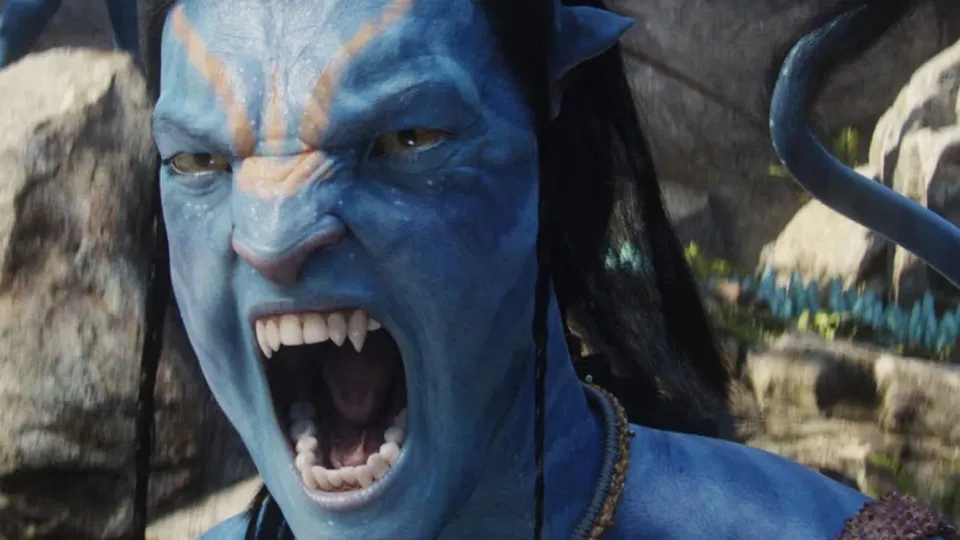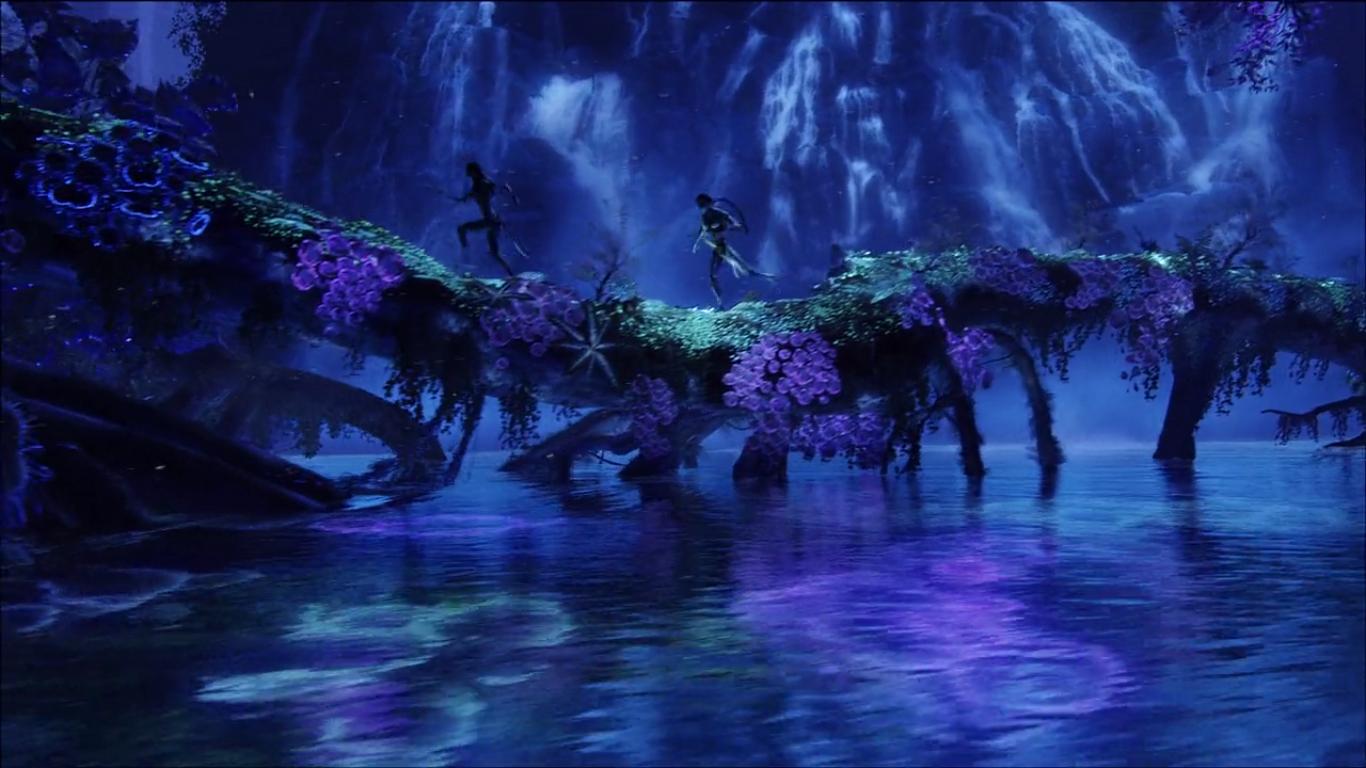You, too, can love Avatar (Cameron, 2009)

(This is the seventeenth installment of my weekly recaps of Avatar: The Last Airbender, the Nickelodeon animated series that ran from 2005 to 2008 to much critical acclaim. I’ve never seen it! This week, I'm covering James Cameron's 2009 film Avatar, the most successful film of all time at the international box office. I have seen it. These recaps are only available to paid subscribers, except for this one, because everybody deserves Avatar.)
By and large, the cultural footprint of Avatar, the most successful film of all time at the international box office, is dominated by a meme, at least in the United States. (The film's enduring popularity in some overseas market is why it was able to reclaim the "top box office champion of all time" crown from Avengers: Endgame after a brief re-release earlier in 2021.) The meme says that Avatar is "Dances With Wolves in space" or "Dances With Smurfs" or something similar. Plenty of cultural properties have come to be dominated by memes both before and after the rise of Avatar, but it may be the biggest hit to be readily reduced to a quippy catchphrase.
And that phenomenon drives me up the wall.
To be clear: "Dances With Wolves in space" stems from a very real criticism of Avatar, which is to say that it replicates the beats and structure of a story about a white savior coming into an indigenous culture and coming to inspire and lead that culture. It's a colonialist fantasy on its face, and Avatar serves its version of this story up with a healthy dollop of "noble savage" racist tripe. The Na'vi are, of course, not a real group of human beings, but they're broadly coded as an indigenous tribe, and the film's refusal to examine that trope at all critically leads it to several troubling places. Hence, "Dances With Wolves in space." (For its part, "Dances With Smurfs" is just a South Park joke that actually predates the release of Avatar.)
But I don't think that the vast majority of people who deride Avatar as being Dances With Wolves or Fern Gully or some other '90s movie "in space" are criticizing its incredibly colonialist efforts to be anti-colonialist. No, they're trying to prove they've outsmarted and defeated the movie. They've found the easiest, pithiest way to describe it and taken it down a peg. And that's what drives me up the wall.
Few popular internet criticisms irritate me more than "[x] is like [y], therefore [x] is bad because [y] got there first." For starters, all culture is built atop the bones of other culture, and sure, some things disguise that better than others, but if you dig around long enough in anything, you'll find the bits and pieces of other works that it's inspired by. When Kirby Ferguson's Everything Is a Remix was briefly the hottest thing out there, I rolled my eyes, because I found its central concept pretty basic. But it turns out Ferguson was right. Most people don't get that most stuff is built out of other stuff, and it's worth reminding them.
What's more, the idea that something not being 100 percent original means it's not good has created a dangerous sense that if a critic compares any new work to an earlier work, said comparison is meant to ride down the newer work. But we compare works a lot! It's kind of a core part of what we do. Treating every single movie or TV show as its own thing in a vacuum is exhausting and self-defeating and ultimately anti-criticism. It is worth it to say, "this thing is like this thing" not as a value judgment but as a one-to-one comparison. And then you can start contrasting the two things.
The thing about Avatar specifically is that its colonialism isn't even best captured by a comparison to Dances With Wolves! Its roots are very firmly in space opera and 20th century sci-fi, and space opera is an incredibly colonialist genre at its heart. (Here's Charlie Jane Anders writing brilliantly about this very thing.) Pushing beyond the easiest comparisons the internet has already made leads you to something even richer, which is that a lot of science fiction is built atop assumptions that probably could be questioned a little bit more, and by replicating the science fiction of his youth, James Cameron has also replicated those assumptions almost entirely.

But my real complaint about this form of criticism is how lazy it is. It's criticism as received wisdom, a way to let you feel like you've "won" over the work you're talking about by finding the quickest possible way to take it down a peg. It's like speed running critical thought, and it leads to cutting corners. I can't stand it.
Avatar is by no means a perfect movie. It has big, big flaws, and its politics are weirdly all over the map. (It wants so badly to be a movie about the horrible destructiveness of the American military, and yet it can't stop gazing in awe at the American military's destructive capacity.) But I feel a little defensive of it after revisiting it. It's brilliantly made, and Cameron remains maybe the most intuitive action filmmaker of all time. The running time is long, but it flies by, and several of the scenes are just terrific. The world of Pandora is so richly realized that by the time the military is razing world trees to the ground, you've all but forgotten they were there. This is a big, cheesy, earnest movie, but it earns its cheese.
Okay, and it's also trans as hell.
Cameron isn't a trans filmmaker (obviously), but he's made a ton of works that lend themselves well to trans readings. Terminator 2 features a shape-shifting robot, and The Abyss features amorphous aliens. Aliens and both Terminators feature the kinds of muscular woman action leads that trans women often glom onto. He produced known trans classic Alita: Battle Angel. True Lies is one hell of a "there's a really awesome woman hidden underneath this buttondown exterior" story. Titanic is about casting off the shackles of your old life and embracing who you really need to be because Leonardo DiCaprio takes you to go dancing with some Irish people down in steerage. And so on.
One of the themes Cameron comes back to again and again is the idea of what might happen if you could simply throw your old life away and take up a new one. Trans people resonate with this, for obvious reasons, and because Cameron tends to make movies about kinda lumpy dudes and awesome women, trans women often really love his films.
But even by the standards of "James Cameron makes movies trans people can enjoy for trans reasons," Avatar is way, way over the top. My friend Cassie said it was basically a transformation fantasy turned into a massive blockbuster, and she's really not wrong. The core idea of this movie is about someone who realizes that to feel happy, he has to exit his body entirely. And he does that by completely transforming himself into a gigantic blue alien in a culture that's not precisely matriarchal but is more matriarchal than the space military.
Necessary sidebar: The way that Avatar depicts Jake realizing he needs to throw aside his body to embrace his true self is really fucking ableist. If you haven't seen this movie in a while, you might have forgotten that Jake is in a wheelchair, and his running and leaping once he's in his Na'vi body is depicted, somewhat directly, as joy at no longer being in his wheelchair. Needless to say, this is really offensive! The trans reading cuts against this but doesn't negate it, and I'd feel like I was being negligent in not bringing this reading up.
Avatar is, to at least some degree, a movie about what happens if you finally stop trying to hard to be an army boy and just let yourself become the person you know you should be, a person that would require changing your entire body. When you consider how prominently this film worships Neytiri, Jake's love interest, there's even more fodder for Fictionmania Avatar fanfic.

What's more, the longer the movie goes on, the more clear it becomes that when Jake isn't inside of his Na'vi avatar, he's experiencing something very like dysphoria. He stops caring for his human form, and he spends 24/7 (or as close to it as he can get) living his "real" life. At the time the film came out, this was discussed as a sort of parallel to hardcore gamers, but trans people, too, often find themselves living more and more as their online avatars, because those avatars feel more real than their physical selves.
I don't have to travel very far to make this reading, which is why it's rather surprising to me that a trans reading of Avatar isn't more prevalent online. It's really all right there for the taking, and Cameron's filmmaking even captures such famous trans body swap classic moments as "looking down and realizing your body is different" and "thinking about how you'd never swap back."
Avatar: It's trans!
Look: If you don't like Avatar, I'm not here to tell you that you should love it. It's a deeply, deeply flawed movie, with many problematic elements. But I do think any time a movie or book or TV show gets boiled down so readily to a bit of internet shorthand, it's worth going back in to look at it again, perhaps especially if it was at one time immensely popular.
There are many things in Avatar that haven't aged well, there are many things that were already out of date when the movie debuted, and there's a bunch of stuff that's just aged strangely (like the use of Papyrus???). But reducing a big, weird, complicated, occasionally brilliant movie to a half-remembered "I dunno, it wasn't that great" and a bunch of easy jokes procured from the internet doesn't really do anyone any favors. I'm not asking you to stan Avatar, because I don't stan Avatar. I'm asking you to work harder for your hatred.
(Also, quit making fun of "unobtanium." It's another nod to the movie's pulp sci-fi roots! This is a word with a very long history in the genre! Arrrggghhh!)
Next time: Okay, okay, okay. We're going to start season three of Avatar: The Last Airbender. I promise.






Member discussion